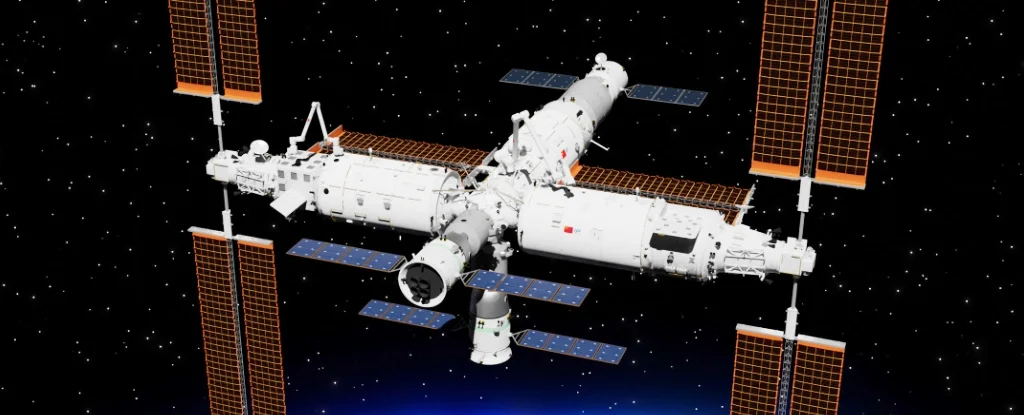
New Bacteria Species Discovered Aboard China’s Tiangong Space Station: A Potential Risk to Astronaut Health?
In a groundbreaking discovery, scientists have identified a new, previously unknown bacterial strain thriving inside China's Tiangong space station. This microbe, named Niallia tiangongensis after its celestial habitat, raises crucial questions about astronaut health and the future of long-term space missions.
The discovery, detailed in the International Journal of Systematic and Evolutionary Microbiology, stems from swabs collected by the Shenzhou-15 astronauts in May 2023. These samples revealed a bacterial species unlike any found on Earth, exhibiting unique adaptations to the harsh conditions of low Earth orbit.

Niallia tiangongensis appears to be related to Niallia circulans, a soil-dwelling bacterium known for its ability to form hardy spores. However, the space-faring variant possesses distinctive capabilities, including breaking down gelatin to acquire nitrogen and carbon. This allows it to construct a protective biofilm, enhancing its resilience in the face of microgravity and radiation.
"Understanding the characteristics of microbes during long-term space missions is essential for safeguarding the health of astronauts and maintaining the functionality of spacecraft," the researchers emphasized. The newfound ability of Niallia tiangongensis to break down gelatin, coupled with its terrestrial cousin's potential to cause sepsis in immunocompromised individuals, necessitates further investigation into its potential risks to the Tiangong crew.
This isn't the first time scientists have encountered unique microbial life adapted to space. The International Space Station (ISS) has previously hosted drug-resistant bacteria, highlighting the remarkable adaptability of microorganisms to extreme environments. However, Niallia tiangongensis differs in both composition and function from these ISS counterparts, underlining the unique microbiome developing within different space habitats.

The discovery also highlights the challenges of maintaining sterile environments, even in meticulously prepared spacecraft. A study of NASA's clean rooms, used to prepare the Mars Phoenix mission, revealed dozens of novel microbe strains with remarkable survival capabilities. These findings emphasize the importance of predicting how microbes will adapt to space conditions.
As humanity sets its sights on longer missions to the Moon and beyond, understanding the role and potential threats posed by these tiny space travelers becomes increasingly critical. What other secrets does Niallia tiangongensis hold, and how will it influence the future of space exploration?
Share your thoughts and opinions on this intriguing discovery in the comments below!